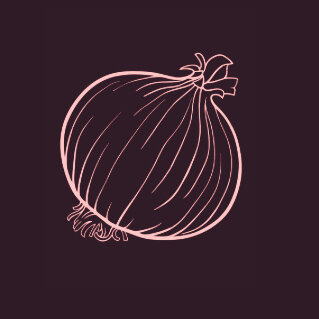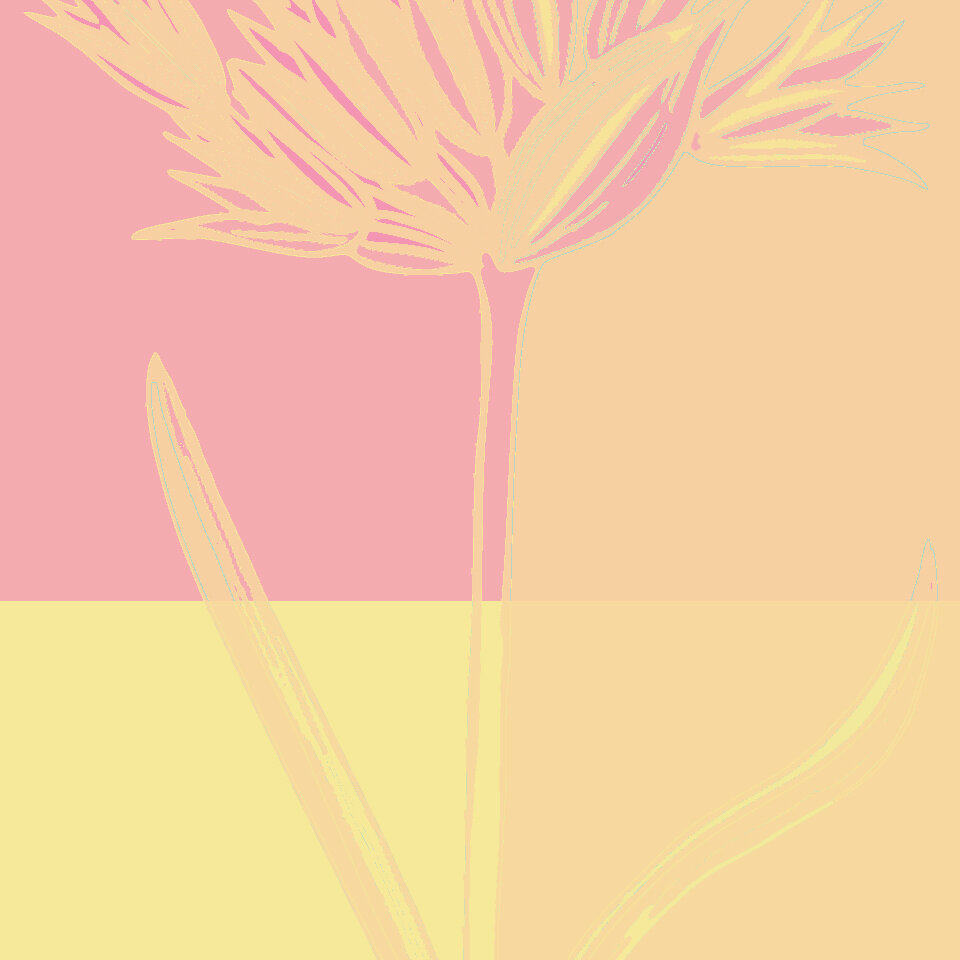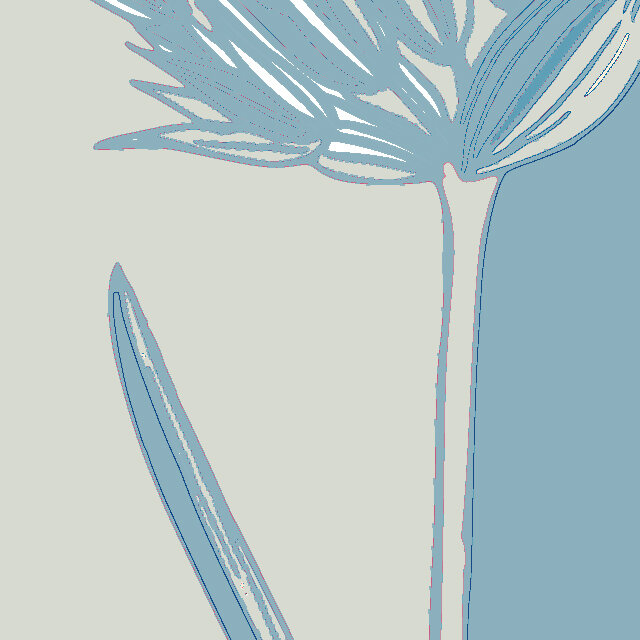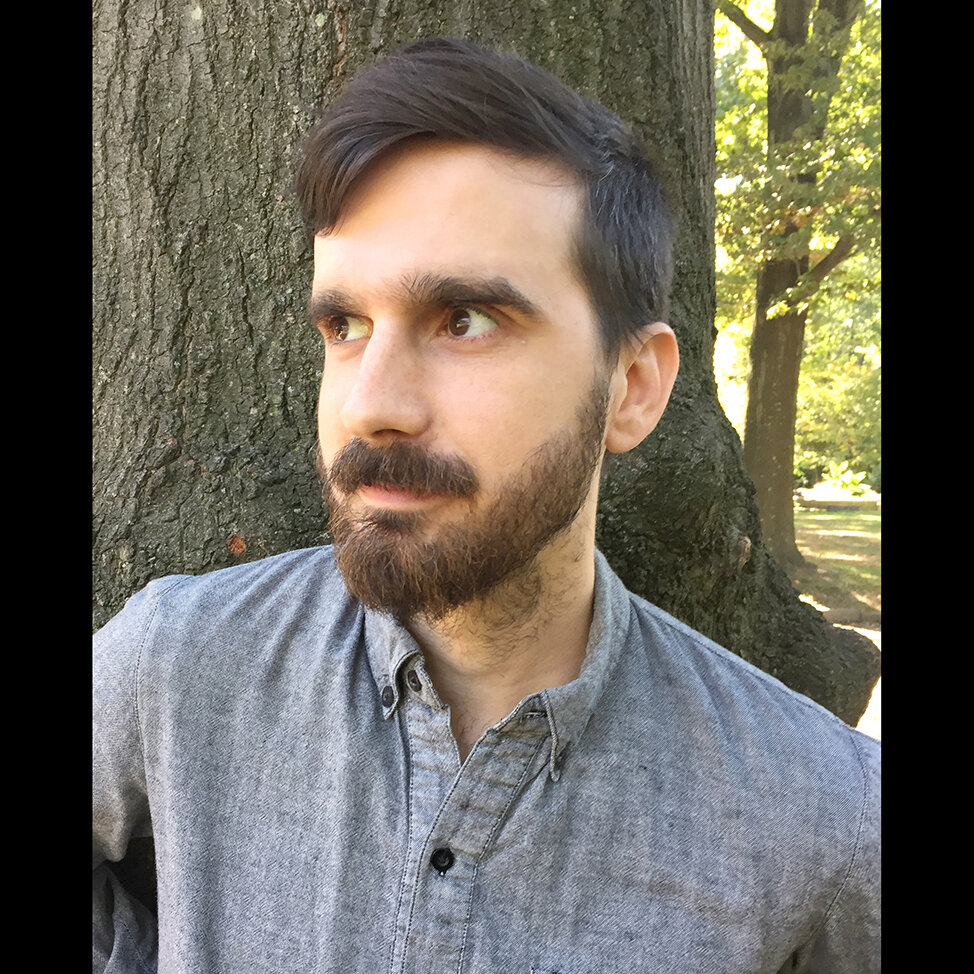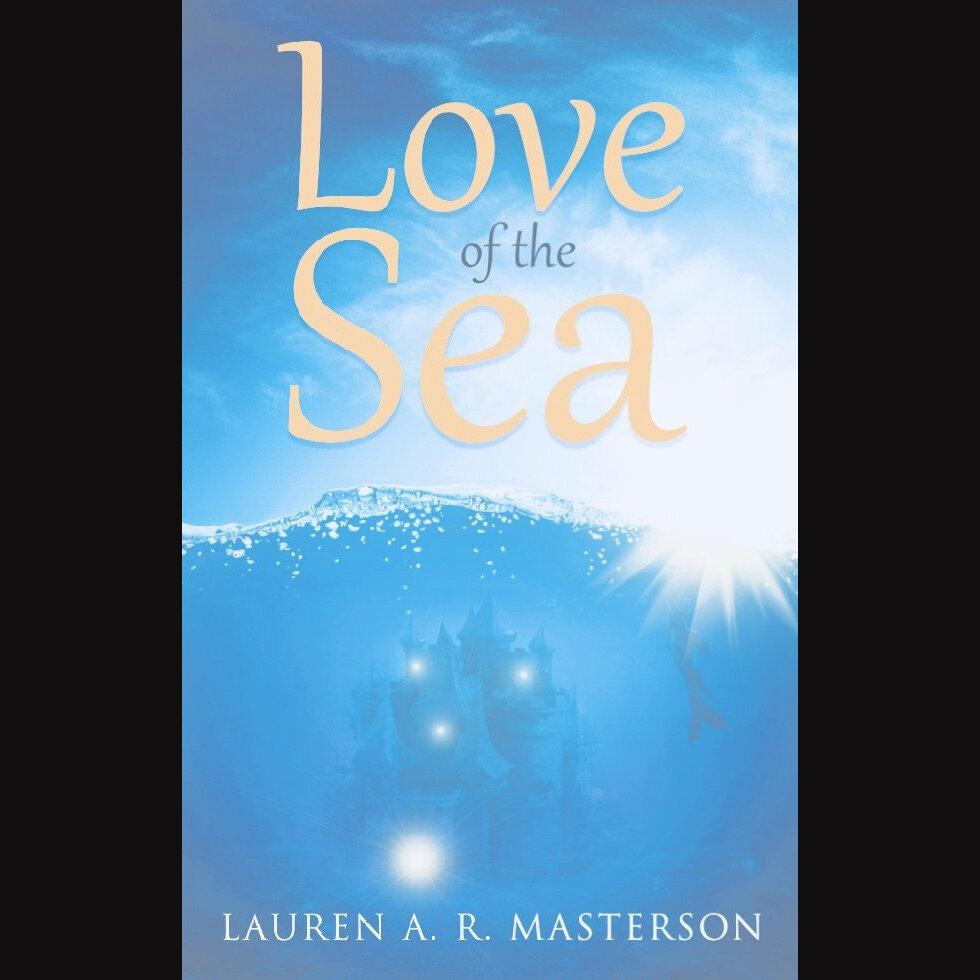Party of One
Mark could hear his phone vibrating on the wooden nightstand, a rattle he was all too familiar with. He rolled over, dismissed his alarm, and laid in the silence of his bedroom. His day began. He rolled out of his bed, slugged his feet into his slippers, and dragged himself into the bathroom in an effort that reminded him of black-and-white zombie movies.
Mark pawed the light switch and looked into the mirror, rubbing his eyes. Internally lamenting over why he got out of bed to begin with. He brushed his teeth with the efficacy of a bear who had just come out of hibernation. Up. Down. Up. Down. This continued not until his teeth were actually clean but until Mark believed he had kept at the task long after the average person would normally stop brushing their teeth. He spat the results into the sink, took off his pajamas, and lumbered into the warmth of the shower.
Five minutes had passed before Mark had even thought about actually washing off the residue accumulated from the day before. He spent those five minutes bemoaning the day ahead. To Mark, his work was not born of passion, but necessity. He worked as a copyeditor for a magazine; wherein, Mark would watch his life waste away as he changed “affects” to “effects,” desperately hoping to be left alone. The pessimist in him spent what seemed like years imagining the ridiculous things his boss would say to him, along with the witty responses he would never actually say to her, provided she would even establish said ridiculous situations to begin with. When he ran out of clever rebuttals, he took a tenth of the time he had already spent showering to actually clean himself, and like a soldier saying goodbye to a loved one before departing to the front lines, Mark turned off the water.
Upon departure from the shower, Mark had but one task left. He took another glance at himself, surprised by how much soap can change the appearance of a human being. After his surprise faded, he unhinged the mirror to reveal the medicine cabinet behind it. He grabbed the orange bottle, stopping immediately. He shook the bottle to a frustrating silence. He muttered all manner of obscenities under his breath before slamming the bottle onto the counter and running a hand through his still-wet hair.
“Unbelievable,” Mark thought to himself. He had called in a refill for his Invega. Alas a late draft of an urgent project had been e-mailed to him after hours, and he had spent the evening rolling his eyes at typos, forgetting to collect his medicine. With the last dose still in him, Mark drifted into the bedroom, snatched his phone from the charging cable, and with a few taps, pulled up the messenger.
Of his acquaintances, only three of them knew about Mark’s medicine: his mother, his doctor, and his best friend Ash. Two of them were out of the question to drive him to the pharmacy, which left Ash. Mark tapped out a message as he walked back to the bathroom to retrieve the clothing he had left himself to change into:
Hey Ash, idk if you’re working rn, but if you aren’t, could you give me a ride to the drug store? I forgot my antipsychotics lmao.
The two had known each other since elementary school. Since before Mark’s schizophrenia, or as he remembered saying to Ash after his diagnosis, “Well, actually, it’s a schizoaffective disorder, and that’s worse than schizophrenia, so I’m fucked!” He laughed along with Ash when he said that, but he knew it wasn’t true. They would still play video games and watch baseball together.
After all, Mark was still himself, he just needed to take his pills, and the longer he went without them, the worse off Mark became. It wasn’t a matter of days, or even hours. Mark had minutes, and when those minutes wore off, it was downhill, fast.
When Mark sent the message, his heart sunk. He felt his medicine beginning to wear off. The party had begun.
As if Mark were pierced by the arrow of insanity, he felt his own consciousness bleed out. Like water filling a glass, the bathroom started to brim with the manifestations of his illness. It started with a tapping noise; it always did. The tapping of a nailless, handless finger on a hard surface, like concrete or steel. It tapped rhythmically, in quarter-notes, Mark had observed. He heard it slowly, by his feet. Like someone had placed themselves under the floorboards. Mark fixed his attention to the floor, and it was there the voices began calling. They were partially indistinct; Mark couldn’t actually make out anything they were saying beyond strange words and phrases. Mark’s soundscape was host to an innumerable amount of these disembodied, causeless voices. Far away, for now, but he could hear them encroaching. Mark briefly sympathized with the creature from Frankenstein, being chased by an alien mob of torches and pitchforks. The first thing he heard came from behind him, miles away. He heard a man yelling.
Hey, mister! There’s blood all over you! There’s blood in your hair!
This caused Mark to run a hand once more through his now damp hair, feeling the different clumps that had begun to dry together. He gagged at the texture.
Ash hadn’t answered that text.
A post-it note lived on the corner of Mark’s laptop. In his handwriting, it read “You only have two hands and ten fingers.” When anyone asked about it, Mark would lie to them. He had an anecdote prepared about the dangers of stressing out over things beyond the control of an individual. It always worked. People would leave the conversation uplifted, sometimes repeating the phrase back to themselves hopefully as they sauntered back to their cubicles.
The truth of the matter was far more unsettling.
Mark’s hallucinations were not just auditory. They seeped through his senses, and the most common visual hallucination Mark endured was a sharp change in the appearance of his hands. Being constantly in his peripherals, Mark’s mind would wander, often interpreting something like the typing of a sentence with forty keystrokes to mean that each of Mark’s hands must contain twenty fingers. Sitting at his desk, Mark opened his laptop, logged in, turned on some music to a playlist marked “ambient jazz,” and brought up his e-mail account. In a message to his boss, Mark began typing:
Sorry to report, but there’s been an emergency in my personal life. I will not be able to. . . .
While writing, Mark had looked down at the keyboard to find the bucket of worms his mind had presented to him: his hands overflowing with writhing fingers. As he looked at them, his stomach swirled in nausea. Combined with the intransient nonsense that had now overtaken his sense of hearing, he wondered. He wondered if this is what others saw him as. He wondered if this was his true self.
Mark interlocked his hands behind his head, closed his eyes as tight as his face would allow, counted to ten, and recited the mantra on his post-it note. “You only have two hands and ten fingers, God damn it,” he growled.
He unlocked his hands and brought them back around into his line of sight. They had returned to the state in which he remembered them. He smirked and finished his e-mail.
Sorry to report, but there’s been an emergency in my personal life, I will not be able to resume working until tomorrow.
Best Regards,
Mark Duppy
Relieved of his responsibility, the only task at hand was getting to the pharmacy to retrieve his Invega. He looked at his calendar.
“Friday, thank God. Three days to get ’em,” Mark thought to himself. Luckily for him, when he woke up on Saturday morning, his phone was blinking with a missed notification.
Mark reached his finger-laden hands toward his phone. He repeated his mantra to no avail.
Hey bud just woke up. Had a 12-12 shift. U good? If not lmk.
Been better. These fuckers are persistent lmao
Bet
U home or did you go somewhere like last time?
Nah I’m home.
Everyone else was busy
There’s no way in hell my mom’s flying in for this shit
haha
Lmao
Don’t leave the house no matter what anyone or anything says
Omw
Thanks
I s2g this isn’t a pattern or anything.
You know. I’ve been taking them
I just forgot.
Ik would’ve been able to tell if you stopped. Don’t mention it.
If u feel real guilty grab some beers for the game
lmao
For sure dude, I’ll get you back on this one.
Don’t worry abt it
Ash buried his phone into the cupholder of his car, turned on the radio, and pulled out of his driveway. Mark’s apartment was just around the corner.
A coping mechanism Mark employed was to look at a compass and attempt to make out all of the real sounds coming from each direction to keep him grounded. He brought up a picture of a compass through an image search.
The north was easy, straight ahead: his laptop. The music. The song he was listening to was amidst a flute intermission, and the trills of the song spiraled through his ears like a stunt pilot looping his plane.
The northeast, slightly to the right, the sun leaked in, dripping through the window. Mark was reminded of warmth as he heard the sounds of a fire crackling in the air. He wasn’t sure if it was the warm presence of good against evil or the fires of hell that awaited him, so he chose the more positive outlook.
To the east, he heard galloping. Like a horse but if its hooves were wet from a run in the rain. The creature galloped from the east, to southeast, to the south, to the southwest, to the south, and finally, back to the southeast until it noticed Mark listening in. Then, it started producing a sound that Mark interpreted as someone chewing meat. The chewing panned across the back of Mark’s head in a similar motion, sweeping from his left ear to his right. Mark listened on, until the beast paused dead south.
Slowly, it worked its way forward, with the sound of metal scraping in addition to the chewing, as if it were eating a knight in armor, dragging him along as the pair walked down a concrete road. It got closer and closer until Mark screamed, trying desperately not to listen.
Finally, to the last cardinal direction, Mark’s exercise was cut short by a knock on the door. Ash had arrived. Mark grabbed his wallet, put on his shoes, and answered the door to find Ash waiting at the bottom of the stairs.
“Jesus Christ, dude,” Ash said, looking up at Mark’s unkempt hair amongst his uncharacteristically rugged appearance. “Has this been happening all day?” He tried to look at Mark, but his eyes were affixed to something far away.
“Yeah, like five minutes after I texted you yesterday.”
“We’re on the clock then, huh? Let’s run it,” Ash said, getting into his car. Mark climbed into the passenger’s seat, and by the time he could buckle his seatbelt, the two were on their way to the pharmacy.
Mark hated traveling while off of his medicine. He would always overestimate the quality of his own imagination. At least in his house, Mark knew where every piece of furniture was, what sound it made, and what shadows it cast. He knew he was alone and could immediately discount any sort of outside character intruding on him. He spent time wondering whether or not anything that was going on was actually real.
The first and most obvious scenario to him was that everything was indeed real, and he was riding with Ash to pick up his medicine. The second slightly worse scenario was that this particular hallucination started before he left the house, and Mark was sitting somewhere in his bedroom in isolation, but at least Ash could find him if he did show up. The third and worst case scenario was that this hallucination started after he left the house, in which case Mark would now be sitting somewhere outside¾God knows where¾inaccessible to anyone on the outside, for Mark would dismiss them as being a hallucination when in fact they were real, and it was he who was operating outside of reality.
This thought scared him, and so he went about trying to prove that all was as it seemed.
“Hey Ash?”
“Yeah?”
“Are you real?” Ash raised an eyebrow toward Mark.
“Yeah, it’s all good,” Ash reassured him.
“Okay,” Mark began, “but, like, if you weren’t real, you’d tell me you were, right? Like, that’s what someone who isn’t real would say.”
“Well, I dunno, man. You’re in the real world.”
“What’s something that only you would say? Like, something that I wouldn’t ever think of you saying?”
“I need to replace my wipers. They’re squeaky,” Ash replied.
“Really?”
“Yeah,” he said, flicking the lever beside the steering wheel. The car’s windshield wipers scraped across the glass, screeching to be repaired.
“Huh,” Mark said, with confirmation that the two were really in Ash’s car, driving to the pharmacy. The pair traveled to the sound of the car as Mark marinated in thought, tuning out the indistinct chatter of the voices until they pulled into the parking lot.
“You need me to go in with you?” Ash asked.
“Nah, I’m good. Thanks, though,” Mark replied, staring ahead toward the door.
“Yep,” Ash said, stepping out of the car to light a cigarette as Mark went inside. The doors slid open, and a voice annunciated through Mark’s ears and into his mind.
We’re watching you.
Before he could even think to ask what that meant, the voice dipped back into the jungle of voices that had trailed him since this morning. He wandered to the back of the store, covertly trying to figure out if any of the other customers were indeed trying to spy on him.
Of course, they were not.
At the back of the store lived the register. He meandered around the area until the cashier spoke to him, as he was the only customer in sight.
“Can I help you, sir?” the young woman inquired.
“Oh, yeah. Sorry, I’m here to pick up a bottle of Invega?” Mark said, looking down at the register.
“Sure,” the woman replied, scrolling through a spreadsheet, “Duppy?”
“That’s me.”
“All right,” the cashier said, fishing a bag out from under her counter and placing the bottle inside of it, “That’s gonna be fifteen twenty-eight.”
“Sure thing,” Mark responded, sliding his card through the reader. The woman handed Mark his receipt, and he wandered back out of the store. He figured out if any of the customers had followed him by weaving between aisles that no reasonable person would traverse unless they were specifically following him on his way. Once he doubled back between stationery and contraceptives, Mark confirmed that he was not being spied on and left the store. Finished with his cigarette, Ash had been waiting in the car for his return.
“Got ’em?” Ash asked.
“Yep,” Mark said, flashing the bag, “Thanks again, by the way.”
“Really, don’t worry about it, man. It’s like, five minutes,” Ash said, pulling out of the parking lot of the pharmacy. The ride back to Mark’s house was uneventful until Ash pulled into the driveway of his apartment building.
“If you need anything else, shoot me a text, yeah?”
“Yeah. Thanks,” Mark said, getting out of the car. Ash rolled down his window.
“Yep, we still good for the game Sunday?” Ash asked.
“Oh yeah, for sure.” Mark nodded. He turned around to face the car, but he avoided looking at Ash once more. He figured if anyone had honestly looked into his eyes, they’d see just how deranged he was and want nothing to do with him.
“All right, see ya then,” Ash replied, pulling away. Mark went back to his apartment, unmodified from how he had left it. That didn’t stop him from checking every facet of every room to ensure that no unwanted company had made their way into his home. When he knew he was alone, Mark retrieved his pills from the bag, ran the faucet, and, at long last, took his medicine.
Mark turned to his laptop, resumed the ambient jazz he had been listening to, and laid in his bed. As he listened, he could feel his sanity starting to breathe once more. The voices retreated, becoming quieter and quieter, until all that was left was the music. With an outstretched hand, Mark shut his laptop, and even the music had ceased.
He laid in the silence he took for granted mere hours ago, and he let it wash over him like the ocean.
_______________________
Gregory Kucera is a fiction writer who graduated from Columbia College Chicago in 2020. This is his first published work.

